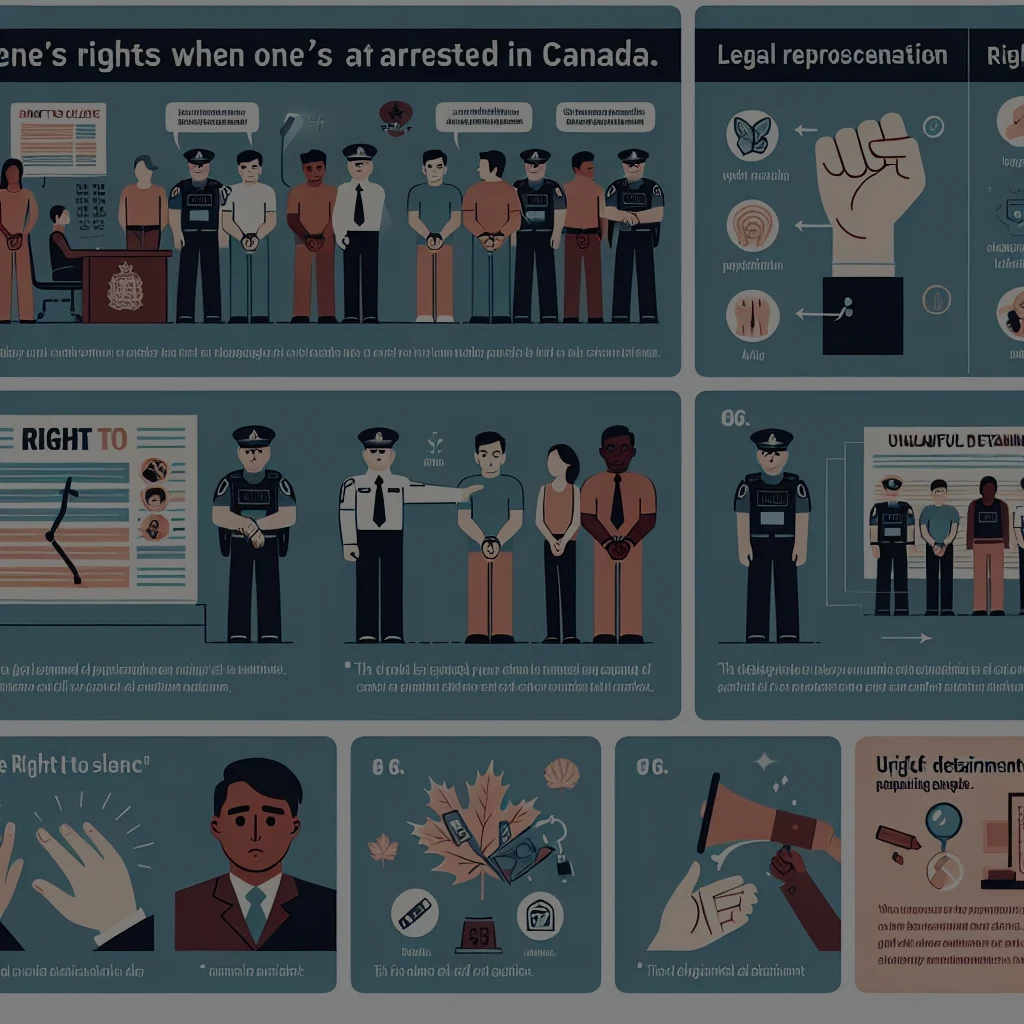When faced with an arrest, many individuals are unaware of the rights afforded to them under Canadian law. Understanding these rights is crucial for anyone who finds themselves in such a situation, as it can significantly impact the outcome of legal proceedings. This comprehensive guide aims to provide clarity on the rights of arrested Canadians, the legal framework surrounding arrest procedures, and essential steps to protect these rights.
Know Your Rights: A Comprehensive Guide for Arrested Canadians
In Canada, individuals have specific rights that must be respected when they are arrested. The Canadian Charter of Rights and Freedoms outlines fundamental rights that protect citizens from arbitrary detention and ensure fair treatment by law enforcement. These rights include the right to remain silent, the right to legal counsel, and the right to be informed of the reasons for the arrest. It is essential for individuals to be aware of these rights, as ignorance can lead to vulnerability during a stressful encounter with law enforcement.
Moreover, understanding your rights empowers you to assert them confidently. For instance, the right to legal counsel means that you can request a lawyer without delay, and law enforcement is obligated to facilitate this request. This right is not just a formality; it serves as a vital tool in ensuring that your case is handled fairly and that you have access to the necessary legal guidance. Being informed can significantly affect the trajectory of your arrest and subsequent legal processes.
Additionally, it is important to recognize that these rights apply universally, regardless of the nature of the alleged offense. Whether facing minor charges or more serious allegations, every arrested individual should remember that they are entitled to the same legal protections. By knowing your rights, you can better navigate the complexities of the justice system and ensure that you are treated justly.
The Legal Framework: Understanding Arrest Procedures in Canada
The legal framework governing arrest procedures in Canada is primarily dictated by the Criminal Code and the Canadian Charter of Rights and Freedoms. Under Section 9 of the Charter, everyone has the right not to be arbitrarily detained or imprisoned. This means that law enforcement must have reasonable grounds to believe that a person has committed an offense before making an arrest. Failure to establish reasonable grounds can render the arrest unlawful and any evidence obtained may be inadmissible in court.
Moreover, police officers are required to inform individuals of the reasons for their arrest at the time of the arrest. This is crucial, as it not only provides transparency but also allows individuals to understand the charges they are facing. The failure to communicate these reasons can further complicate the legal process and may contribute to issues of wrongful arrest. Understanding these procedural requirements can help individuals assert their rights effectively when confronted by law enforcement.
Additionally, it’s important to understand that the police must follow specific protocols during an arrest, including the handling of evidence and the treatment of arrested individuals. Any breach of these protocols can lead to serious legal repercussions for law enforcement and can impact the integrity of the entire arrest process. Individuals have the right to report any misconduct they experience during an arrest, which can lead to accountability for law enforcement agencies.
Essential Rights: What You Should Expect During an Arrest
During an arrest, individuals should expect to be treated with respect and dignity. Upon arrest, the police are required to identify themselves and inform you that you are being arrested, as well as the reasons for the arrest. This is a fundamental right designed to ensure transparency and accountability. If you are not informed of the reasons for your arrest, you have every right to inquire further, as this is a crucial aspect of the legal process.
Another essential right is the right to remain silent. This means that you are not obligated to answer questions from law enforcement until you have consulted with a lawyer. Exercising this right is a protective measure; anything you say can be used against you in court. Therefore, it is wise to clearly state that you wish to remain silent until you have the opportunity to speak with legal counsel.
Moreover, individuals have the right to contact a lawyer as soon as they are arrested. Police are required to provide you access to a telephone to contact legal representation. If you cannot afford a lawyer, you may be entitled to legal aid, which provides access to legal services for those who qualify. Knowing these rights ensures that you can make informed decisions during the legal process and safeguard your defense.
Taking Action: Steps to Protect Your Rights and Freedoms
If you find yourself in a situation where you are being arrested, the first step is to remain calm and composed. It is important to avoid any actions that could be interpreted as resistance, as this may escalate the situation. Politely ask the officers for clarification about your rights and the reasons for your arrest. By remaining respectful, you help create an environment where your rights can be more readily acknowledged and protected.
Next, explicitly assert your right to remain silent and request to speak with a lawyer immediately. Make it clear that you do not wish to answer any questions without legal representation present. This not only protects you but also serves as a reminder to law enforcement of your rights under the Charter. Documenting the details of the arrest, including the officers’ names and badge numbers, can also be useful later on if you need to challenge the legality of the arrest or seek accountability for any misconduct.
Finally, consider reaching out to a trusted individual who can assist you in finding legal representation. If you have access to a lawyer, inform them about your situation as soon as possible. If not, seek out legal aid services in your area. Having professional legal support can be instrumental in navigating the complexities of the legal system and ensuring that your rights are upheld throughout the proceedings.
In summary, understanding your rights when arrested in Canada is crucial for protecting your freedoms and ensuring fair treatment under the law. By knowing the legal framework surrounding arrest procedures, the essential rights you are entitled to, and the steps you can take to protect those rights, you can navigate the complexities of the legal system with greater confidence. Remember, being informed is your best defense against potential injustices in the criminal justice system.
Navigating the Appeal Process: A Guide for Canadian CourtsUnderstanding Impaired Driving Penalties Across CanadaUnderstanding Your Rights: The Canadian Human Rights Act ExplainedRelevant LinkRelevant LinkRelevant LinkNavigating the Appeal Process: A Guide for Canadian CourtsUnderstanding Impaired Driving Penalties Across CanadaUnderstanding Your Rights: The Canadian Human Rights Act ExplainedRelevant LinkRelevant LinkRelevant Link


